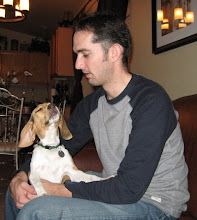Fear is a powerful emotion. Great leaders
have used it as a rallying cry to guide their people through difficult periods,
recognizing its potential to distract and disable them. Franklin D. Roosevelt’s
now immortal words from his first inaugural address still ring true, “So, first of all, let me assert my firm belief that the only
thing we have to fear is...fear itself — nameless, unreasoning, unjustified
terror which paralyzes needed efforts to convert retreat into advance.”
In contrast, infamous tyrants have used
fear to justify actions that history condemns without qualification. In
deference to Godwin’s law, Hitler’s most cunning weapon was to fan flames of
fear against Jews and other races that were perceived to threaten his people.
The terror that could paralyze is cultivated into a frenzy that enables
unspeakable horrors.
However it is shaped, fear is an
ever-present emotion that evokes strong actions. The primal nature of fear is a
key element of survival. In the absence of social contracts that moderate human
behavior, fear would be a constant that heightens awareness and senses to the
many unknown dangers faced in a hazardous environment. Without the consequences
of immorality, fear would lead to the demise of the “other” when the “self” is
at risk.
Fear does, and always will have a place in
a human world. Despite the vast amount of knowledge now available with a click,
much is unknown and dangers are very real. Death, whether the end of a
consciousness or a transition into a new one, is an irrevocable conclusion to
the most cherished of possessions – life. As the vigilant guardian of this
possession, fear is a consequence of it.
For societies that have known peace and
lived in a world where fear is not a daily concern, the role of fear can be
much more precarious. When fear is unfamiliar, the ability to cope with it and
harness its power towards a chosen outcome is diminished. Rather, fear often becomes
a yoke that is used to the advantage of others to the detriment of the “self”.
A person’s will is lost when they subscribe to the fear monger’s ambitions.
With such potential, the responsibility to study and understand one’s own fears
has never been greater.
In the aftermath of 9/11, the United
States was gripped by fear. When George W. Bush stood on the rubble of the
Trade Towers he vowed to bring justice to those who had caused such horror. At
that defining time in the nation’s history, fear could have been harnessed to
guide people through tragedy; or, as it was, used to justify actions in the
name of survival.
Since that time fear mongering has
become a norm in the United States. For a media that preys on strong emotions
to buoy a bottom line, fear is a means to raise the number of views and appease
sponsors. In a political world, it can also translate into votes. However, even
tyrants aware of fear’s power and skilled in its exploitation are eventually
the victims of its venom.
As Donald Trump now stands on top of a
platform built and cultivated by the Republican Party for more than a decade (or most political parties nowadays it seems),
he is the inevitable conclusion of their fear mongering. His rallying cry fans
the flames of fear, reassuring those who support him that what they are feeling
was meant to empower him. In reality, when leaders use fear for their own
purposes, they defeat the “others” that bestowed them with such power and are
left to face the self-correcting wrath of human morality alone.
As these words flow from my early
morning brain, I am both disappointed that my homeland has been intoxicated by
fear and seduced by those who are using it for their own benefit. I yearn for
leaders with a vision that hopes for a better future. I mourn the loss of the
sense of purpose and community, but understand that without challenge and
opposition the deep roots that ground us will be too shallow to protect from
future storms.
However these words come to light, and
I hope they are not in vain, I challenge you to know your fear. Accept it for
what it is, and be wary of those who would make it grow within you. Fear does
have a purpose, to make you aware of others so that you know they are there.
What you choose to do then is what makes you human or an animal.






No comments:
Post a Comment